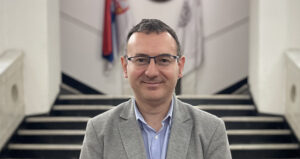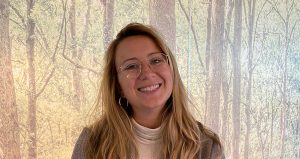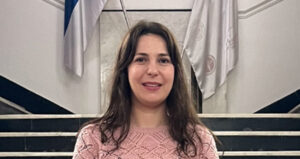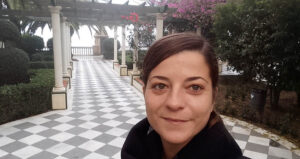Loïc: “We are different in our methods”
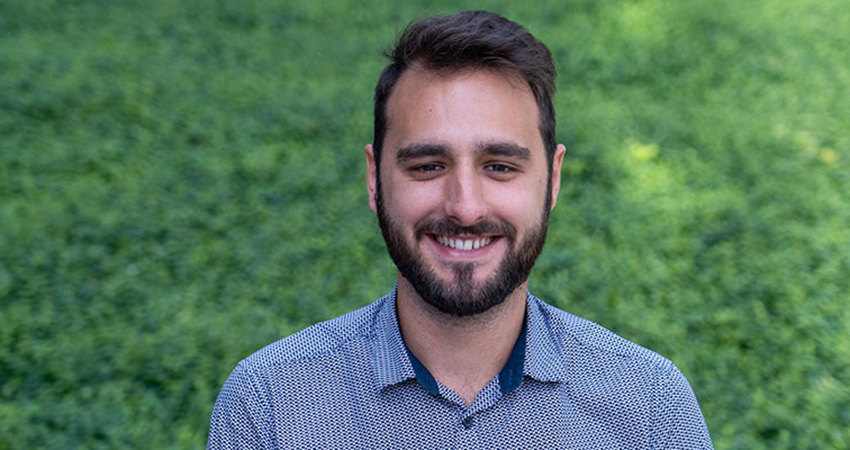
- 14 July 2020
-
Editorial Team
Share article:
Loïc Charpentier from France participated in the first edition of the European Junior Water Programme (EJWP). He is sharing his experiences on Water News Europe. He is enthusiastic about seeing how water systems work in countries like Romania, Norway and others. “Looking at the water footprint comparisons over regions has been particularly interesting. We’re all linked somehow in the water sector, but are different in our methods.”
Where do you work now?
“Today I’m working with Water Europe in Brussels on the full value chain of the water sector to build a European Water–Smart Society, based on 4 pillars: 1) value of water 2) value in water 3) grey & green infrastructures and 4) digital water. Water Europe is a value-based European association which foster collaborative initiatives within cross industry sectors; create an enabling environment for water related RTD (projects) and innovation,. We aim to pro-actively raise the importance of the water sector and contribute to solving water-related global challenges.”
What did you study?
“I have a bachelor’s in law and political science and a master’s in European Studies.”
What do you hope to learn through EJWP?
“My hope was more in a curiosity approach to feed my thinking and get other views on the same prism. I mean discover other ways of thinking, learn and test methods to work collectively and tackle the challenges that we can face in our respective projects. I also expected connections to open up new channels for future collaboration. Listening to the experiences and backgrounds of other colleagues is always a source of inspiration which can offer new solutions and opportunities to move forward.”
What was your best experience with EJWP so far?
“I think it was the first project. I was in a leadership role and it was the first time that we met together, also before the COVID pandemic. It was motivating to set up the timeline for the next 3 months in line with the different ways of thinking and cultural backgrounds. I think it was a success to start this 2–year programme and provide a first deliverable. Our collaboration resulted in a whitepaper to identify best practices for human capital in the water sector.”
What have you already learned?
“Being in the EJWP is actually an opportunity in itself through the connections that we make, because we interact with other young experts in the water sector with different perspectives. For example, I work on regulatory issues, but I have experienced the technical aspect and learnt some useful points. It’s also something to see how the systems work in countries like Romania, Norway and others. Looking at the water footprint comparisons over regions has been particularly interesting. We’re all linked somehow in the water sector, but are different in our methods. It’s also an opportunity to exchange best practices and think about fresh ideas out of the box, because we as participants are not as limited by current demands and consequences of experimentation.”
What are the benefits of an international network?
“Building a cross-European network is valuable to the creation of a more unified European water sector. It also facilitates the creation of solutions for tackling this international challenge. Water knows no borders, and therefore you cannot embrace the full value of water and the whole set of water-smart solutions without connecting the dots between the regions in Europe and beyond. The last edition of Water Innovation Europe 2021 raised the importance of the international dimension for water management. It’s a watermark on the conclusions of these 5 days.”
What can international water professionals mean for the water sector?
“I agree with Martha and Hedviga: An interdisciplinary and holistic approach is the only way to solve water-related challenges. The large majority of our activities need water and can impact several regions across the world. It’s an opportunity to better master the value of water and the all ramifications of our actions. Achieving a global water-smart society which considers the value of water, including enabling all our economic activities, societal functions related to health and well-being, as well as the economic value of resources and energy embedded in our water streams is crucial. For this, we need to gather forces and effectively deploy solutions.”
Where or in which position would you like to work in five years?
“Good question. I will say everywhere I can be useful and serve a vision which fits with my personal positions. I foresee growing interests in international environmental dossiers, particularly the challenges in/between Europe and Indonesia, but also in Africa due to my background. I would appreciate striving to support solutions in these regions. Being curious, a concrete reply to this question remains a challenge.”

